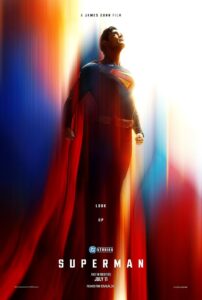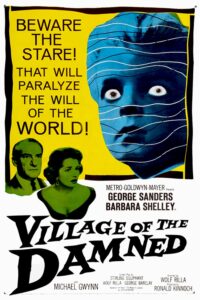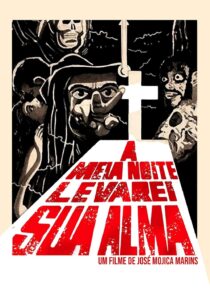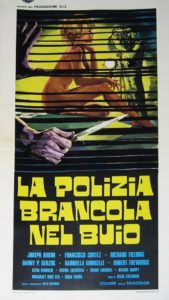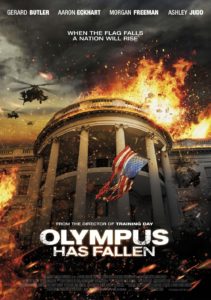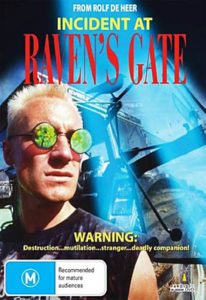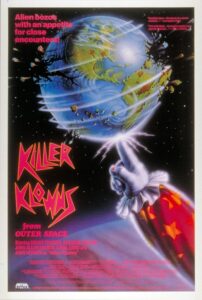 Rarely has an episode of my podcast hit the nail so squarely on the head, and rarely has a movie title so succinctly summed up its contents. The scare die was clowns or dolls, and the style die was cheesy. And so I have finally watched[1] Killer Klowns from Outer Space.
Rarely has an episode of my podcast hit the nail so squarely on the head, and rarely has a movie title so succinctly summed up its contents. The scare die was clowns or dolls, and the style die was cheesy. And so I have finally watched[1] Killer Klowns from Outer Space.
This is basically one of those teenage screwball comedies with a recognizable face as the annoyed authority figure and a lot of unrecognizable faces as the various teens getting themselves into screwball situations to annoy the authority figure. Only instead of trying to save the ski lodge from the evil yuppie developer, or trying to keep their frat house from being shut down by the dean, they’re trying to save the town from an alien invasion of clowns with a circus tent spaceship, cotton candy body containers, popcorn guns, and balloon animal minions.
This movie is exactly what it sounds like, exactly as good as it sounds like, and has not only a line of dialogue but also a theme song that name-drops the title. The script was not so much written as it was recorded during a late night dorm room weed session and then just filmed straight from the recording, with no notes, no editing, no rewrites, nothing. Whatever you think of, it’s what they thought of too.
I’m not going to turn around and say it’s good now. I’m not even going to say I’m being unfair. But I will say that you have to truly admire the dedication to the bit. This is the kind of movie that proudly proclaims, “You think you can make a movie? All you need is a rich dentist and a time machine to get you back to the 1970s or ’80s. Because if we made this, you can too!” (For all I know, you don’t even need the time machine.)
Also, though, the klown kostuming is pretty legit.
[1] How have I not seen this before? I was expecting to be all, “oh yeah,” but nope. First time.
